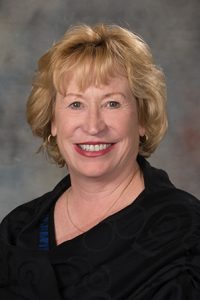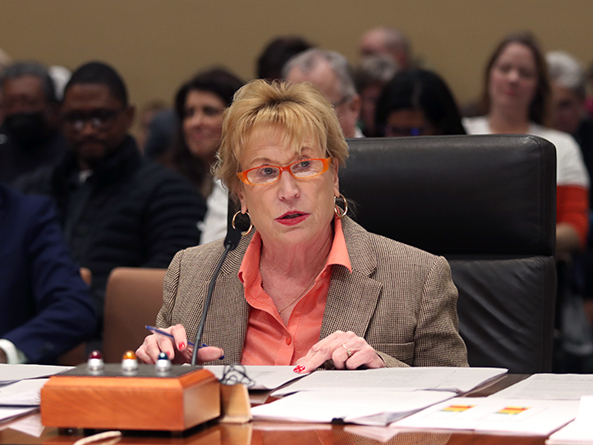Tax credit scholarship program considered
The Revenue Committee heard testimony Feb. 3 on a bill that would create a tax credit scholarship program for Nebraska private school students.

Elkhorn Sen. Lou Ann Linehan introduced LB753 at the request of Gov. Jim Pillen. The measure would allow individuals, passthrough entities, estates, trusts and corporations to claim a nonrefundable income tax credit of up to 50 percent of their state income tax liability on contributions they make to nonprofit organizations that grant scholarships to students to attend private school.
Linehan said the proposal would give more children from low-income families the ability to attend private school if their public school is not a good fit.
“[LB753] creates an opportunity for all children in Nebraska, regardless of their parents’ income, to have access to an education they want and desire, and they deserve.”
Only Nebraska residents would be eligible for the scholarships, which could be used to pay tuition and fees at a qualifying privately operated elementary or secondary school in Nebraska.
Students would be eligible for the scholarships if, among other requirements, they are a dependent member of a household that qualifies for reduced-price meals under the National School Lunch Program.
LB753 would allow the state Department of Revenue to grant $25 million in credits in 2024. After that, if at least 90 percent of the credits in any given year are claimed, the annual limit would increase by 25 percent.
The department estimates that the annual limit would increase each year and that LB753 would reduce general fund revenue by $31.3 million in fiscal year 2025-26 and $39.1 million in FY2026-27.
Pillen supported the proposal, saying Nebraska is one of only two states that does not have a similar program. Neighboring Iowa has committed $345 million per year in its budget for support to private schools, he said.
Jeremy Ekeler testified in support of the bill on behalf of the Nebraska Catholic Conference. He said the Children’s Scholarship Fund of Omaha, which provides scholarships to low-income students to attend private schools, turned away 235 applicants last year.
“There was a need, there is a need [and] there is more need coming,” Ekeler said.
Cheryl Logan, superintendent of Omaha Public Schools, testified in opposition to LB753. As the proposed scholarship program grows over time, she said, it could start to compete with public schools for state funding.
“Money and resources are finite,” Logan said.
Also in opposition was Joey Adler Ruane of OpenSky Policy Institute. Under LB753, he said, an individual who contributes to a scholarship granting organization would receive a much greater tax benefit than one who makes a donation to other charitable organizations.
Lincoln Board of Education member Barbara Baier testified in opposition to the bill on behalf of the board. She said the proposal would allow scholarships to be used at schools that could deny enrollment to students based on factors other than race, including their religious beliefs or disabilities.
Additionally, Baier said, LB753 would not require private schools to collect or report data that could be used to measure scholarship recipients’ academic performance.
The committee took no immediate action on the bill.


